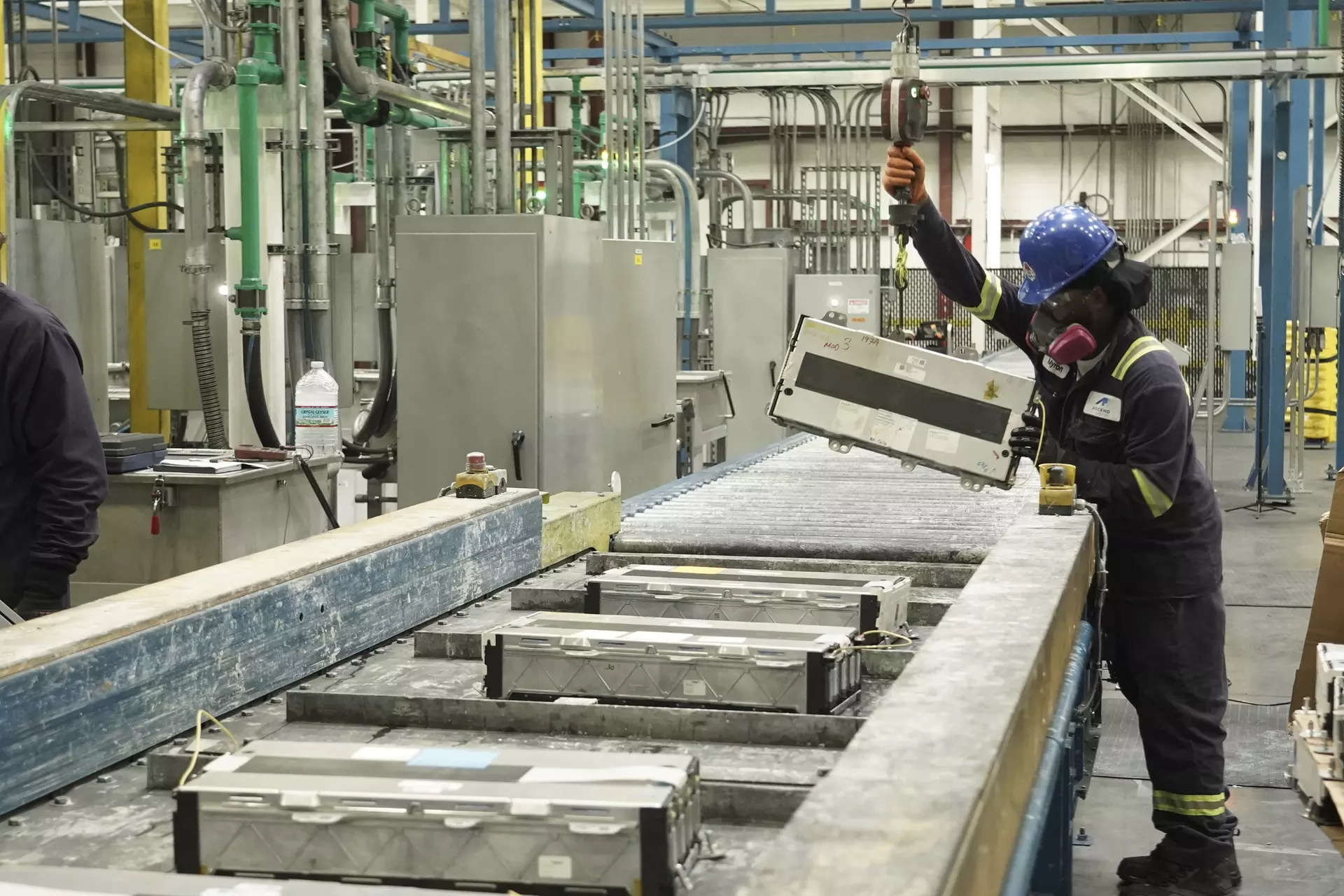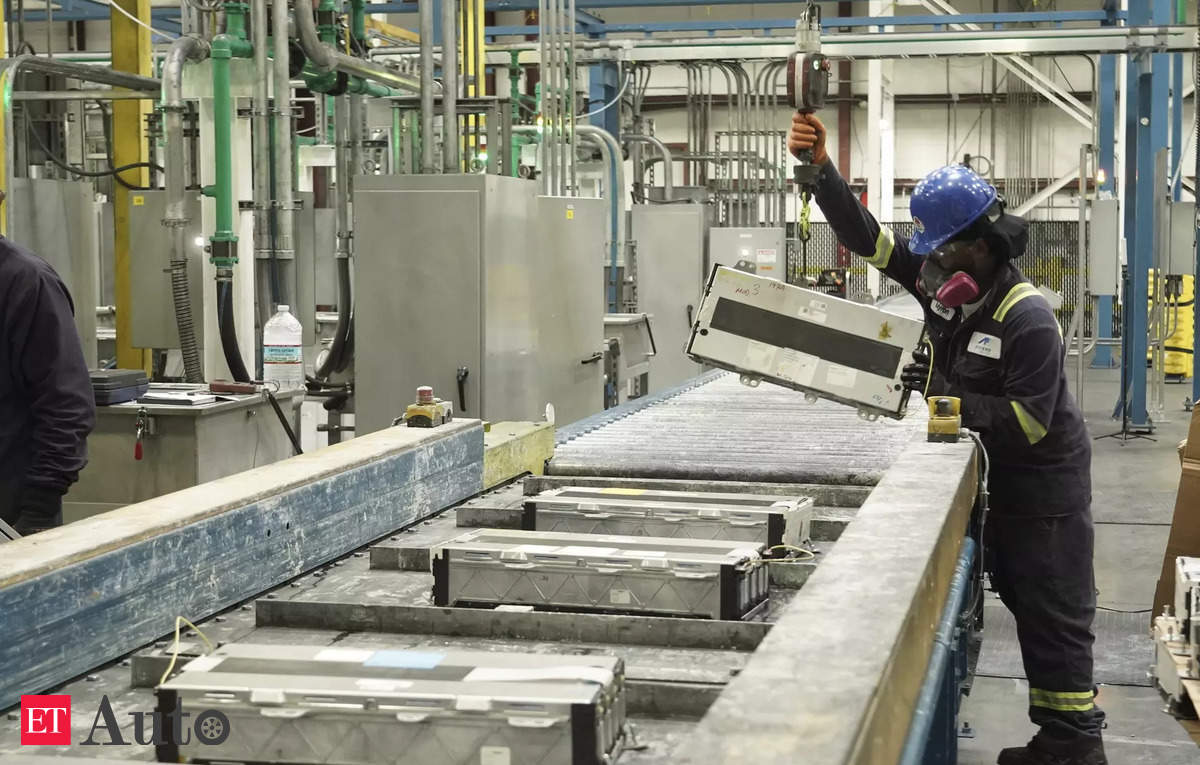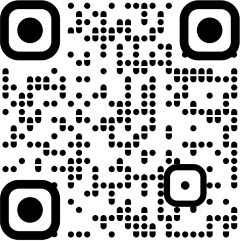
A recycling facility will be built in Kentucky to shred electric vehicle batteries in a USD 65 million venture between American and South Korean companies that will supply material for a separate battery-related operation in the same town, the companies announced Tuesday.
The 100,000-square-foot (9,000-square meter) EV battery recycling facility to be built in Hopkinsville will create about 60 jobs, according to U.S.-based Ascend Elements, which is partnering with South Korea-based SK ecoplant and its electronic-waste recycling subsidiary, TES, on the project. Construction is set to begin in November and be completed in January 2025. Hopkinsville is 170 miles (274 kilometers) southwest of Louisville, Kentucky.
“This is just the beginning of an entirely new industry in the United States,” Mike O’Kronley, CEO of Ascend Elements, said in a news release. “For every new EV battery gigafactory that is built, we will need to build a new battery recycling facility to process manufacturing scrand end-of-life batteries.”
The recycling facility will disassemble and shred about 24,000 metric tons of used EV batteries and gigafactory scrap per year – or approximately 56,000 EV batteries yearly, the company said. The exact location for the new facility hasn’t been determined, it said.
SK ecoplant will be the majority owner, holding 64% of the new joint venture, with Ascend Elements owning 25% and TES owning 11%, according to the release. Since 2022, SK ecoplant has invested more than USD 60 million in Massachusetts-based Ascend Elements.
“This is a capital intensive endeavor, so joint ventures between strategically aligned partners is an ideal way to fund new infrastructure projects,” O’Kronley said.
The new facility each year will produce about 12,000 metric tons of black mass – a powder that contains the valuable cathode and anode materials inside an electric vehicle battery, the company said.
Black mass produced at the new recycling facility will help supply Ascend Elements’ nearby Apex 1 engineered battery materials facility, a USD 1 billion project currently under construction in Hopkinsville that will employ 400 workers. At full capacity, the project will produce enough engineered cathode material for about 750,000 new electric vehicles per year, the company said.
Ascend Elements said it recently closed a USD 542 million funding round and received USD 480 million in U.S. Department of Energy grant awards to accelerate construction of the Apex 1 project. Ascend Elements also has a battery recycling facility in Covington, Georgia, and a battery laboratory in Novi, Michigan.
The recycling facility in Hopkinsville will deepen Kentucky’s connections to the emerging EV sector.
“We’ve become the EV battery capital of the United States of America and the jobs keep pouring in,” Kentucky Gov. Andy Beshear said in a social media video Tuesday.
During Beshear’s term, Kentucky has landed nearly USD 11 billion in private-sector investments and more than 10,000 jobs in the EV sector, the governor’s office said. In the biggest project, Ford and its battery partner, SK Innovation of South Korea, are building twin battery plants outside Glendale in central Kentucky. The USD 5.8 billion megaproject will create 5,000 jobs to produce batteries for the automaker’s next generation of electric vehicles.
In the U.S., electric vehicle sales continued to rise during the first half of the year to more than 557,000 vehicles, or 7.2% of all new vehicle sales. The EV share of the market last year was 5.8% with just over 807,000 sales. Industry analysts predict continued growth in EV sales for the next decade or more.









